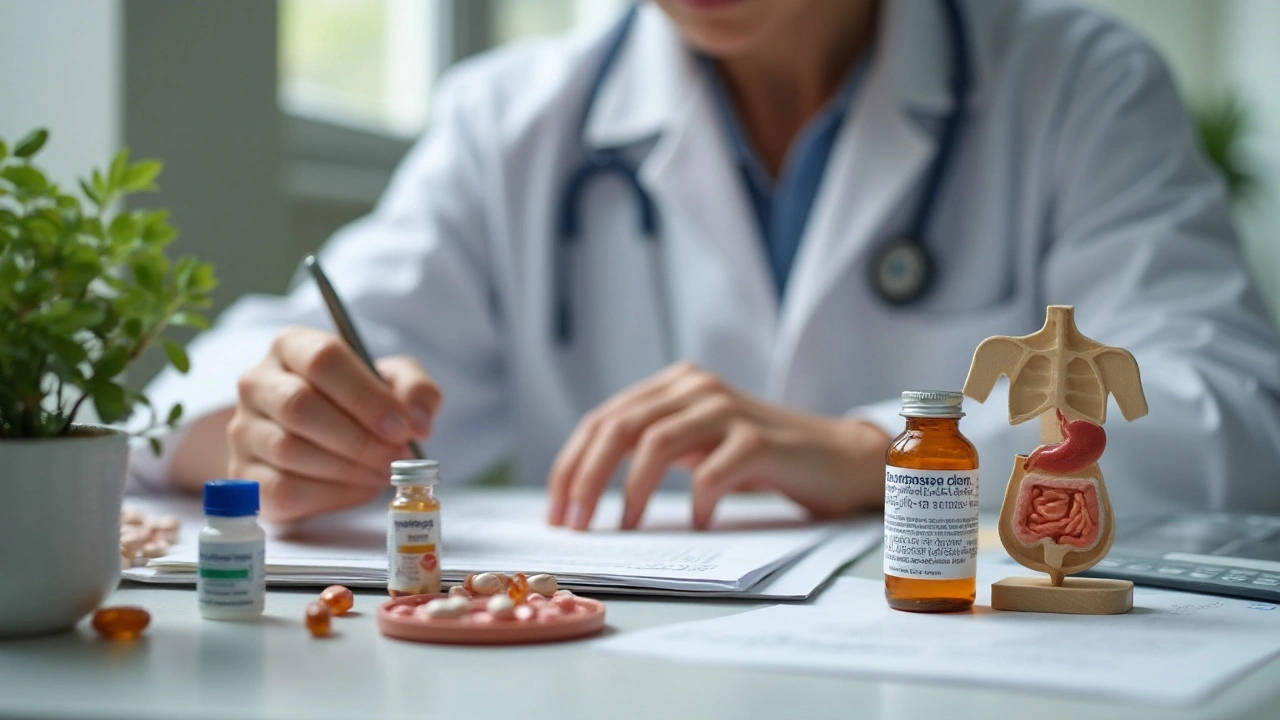Understanding Intestinal Infections: What You Need to Know
Intestinal infections happen when harmful germs like bacteria, viruses, or parasites get into your digestive system. These can cause symptoms like diarrhea, stomach cramps, nausea, and sometimes fever. It's one of the most common health issues worldwide, affecting people of all ages. Knowing how these infections spread and how to handle them can save you a lot of discomfort and keep serious complications at bay.
Most intestinal infections come from contaminated food or water, or close contact with an infected person. Simple things like not washing your hands after using the bathroom or before eating can help germs spread. That's why good hygiene and safe food prep are your first line of defense.
Spotting the Signs and Knowing When to Act
Diarrhea is often the first sign something's off in your gut. It might be watery and frequent, sometimes with mucus or blood. Other symptoms to watch for include stomach pain, bloating, nausea, and vomiting. If you notice these signs, especially if diarrhea lasts more than a couple of days or you get a fever, it’s time to see a doctor.
Don’t ignore dehydration, which can happen quickly if you lose a lot of fluids. Keep drinking water or oral rehydration solutions, and avoid caffeine and alcohol, which can make things worse. Rest is key, and most mild infections get better on their own with time.
How Treatment Works and What You Can Do at Home
Treatment depends on the cause. Bacterial infections might need antibiotics, but viruses usually don’t. Parasites require specific medication. Don’t self-prescribe; always check with a healthcare professional before starting any treatment. They can suggest safe and effective options based on what’s causing the infection.
Eating bland foods, like bananas, rice, applesauce, and toast, can help ease your symptoms while your intestines heal. Avoid greasy, spicy, or heavy foods until you’re feeling better. Also, probiotics might support your gut recovery, but their benefit varies by case.
To prevent getting intestinal infections, wash your hands regularly, especially after the bathroom and before meals. Drink bottled or treated water when traveling, and be cautious with street food. Keeping your kitchen and utensils clean also lowers your risk.
Intestinal infections are annoying, but with the right knowledge and care, you can minimize their impact and recover faster. If symptoms get worse or you have concerns, don’t hesitate to get professional help. Staying informed is the best way to protect your health.
Effective Use of Antibiotics for Intestinal and Vaginal Infections
- Elliot Grove
- on Sep 5 2024
- 16 Comments
Antibiotics play a crucial role in treating intestinal and vaginal infections when used correctly. However, their misuse can lead to complications like antibiotic resistance. This article provides a comprehensive guide on how antibiotics work on such infections, their proper use, interesting facts, and helpful tips about their administration.

